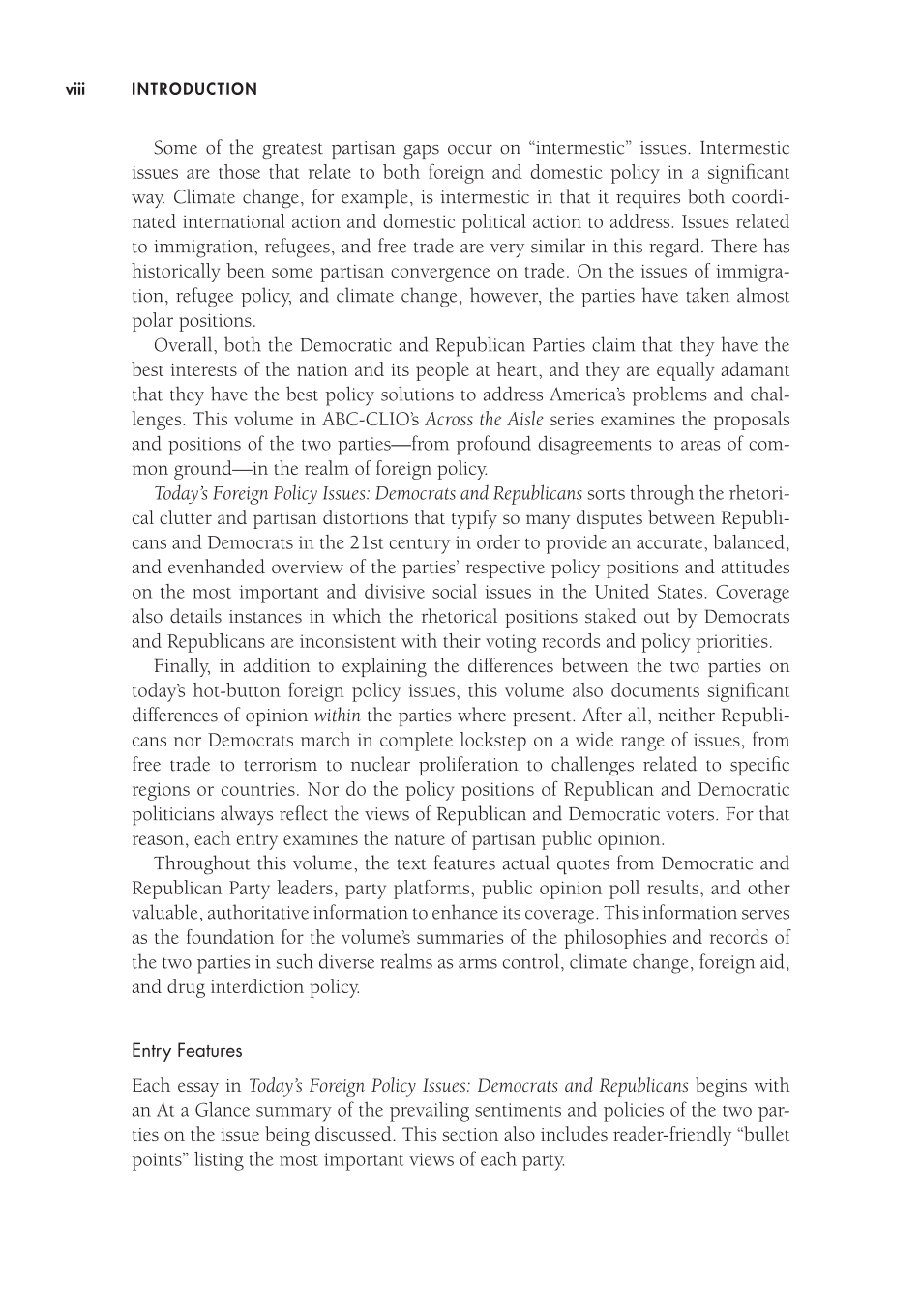viii Introduction
Some of the greatest partisan gaps occur on “intermestic” issues. Intermestic
issues are those that relate to both foreign and domestic policy in a significant
way. Climate change, for example, is intermestic in that it requires both coordi-
nated international action and domestic political action to address. Issues related
to immigration, refugees, and free trade are very similar in this regard. There has
historically been some partisan convergence on trade. On the issues of immigra-
tion, refugee policy, and climate change, however, the parties have taken almost
polar positions.
Overall, both the Democratic and Republican Parties claim that they have the
best interests of the nation and its people at heart, and they are equally adamant
that they have the best policy solutions to address America’s problems and chal-
lenges. This volume in ABC-CLIO’s Across the Aisle series examines the proposals
and positions of the two parties—from profound disagreements to areas of com-
mon ground—in the realm of foreign policy.
Today’s Foreign Policy Issues: Democrats and Republicans sorts through the rhetori-
cal clutter and partisan distortions that typify so many disputes between Republi-
cans and Democrats in the 21st century in order to provide an accurate, balanced,
and evenhanded overview of the parties’ respective policy positions and attitudes
on the most important and divisive social issues in the United States. Coverage
also details instances in which the rhetorical positions staked out by Democrats
and Republicans are inconsistent with their voting records and policy priorities.
Finally, in addition to explaining the differences between the two parties on
today’s hot-button foreign policy issues, this volume also documents significant
differences of opinion within the parties where present. After all, neither Republi-
cans nor Democrats march in complete lockstep on a wide range of issues, from
free trade to terrorism to nuclear proliferation to challenges related to specific
regions or countries. Nor do the policy positions of Republican and Democratic
politicians always reflect the views of Republican and Democratic voters. For that
reason, each entry examines the nature of partisan public opinion.
Throughout this volume, the text features actual quotes from Democratic and
Republican Party leaders, party platforms, public opinion poll results, and other
valuable, authoritative information to enhance its coverage. This information serves
as the foundation for the volume’s summaries of the philosophies and records of
the two parties in such diverse realms as arms control, climate change, foreign aid,
and drug interdiction policy.
Entry Features
Each essay in Today’s Foreign Policy Issues: Democrats and Republicans begins with
an At a Glance summary of the prevailing sentiments and policies of the two par-
ties on the issue being discussed. This section also includes reader-friendly “bullet
points” listing the most important views of each party.




























































































































































































































































































































































































































